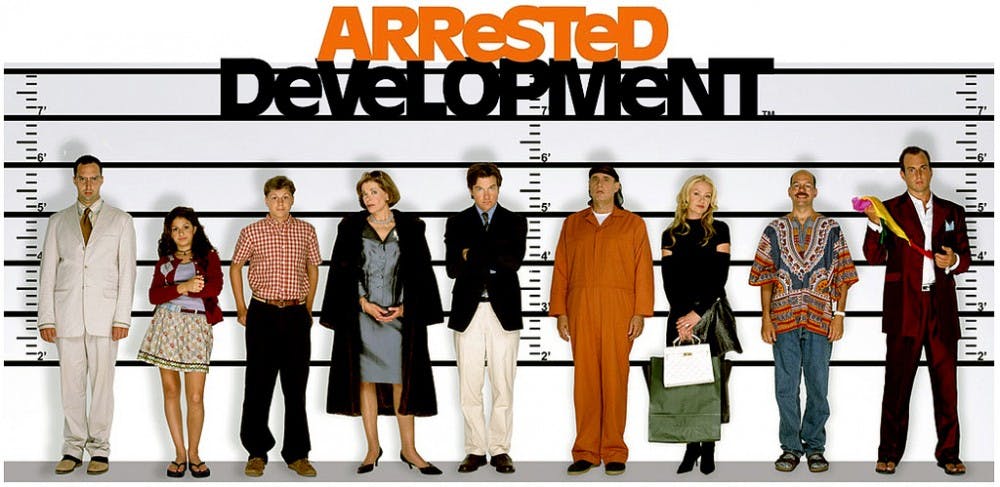America’s first family is back. But their last name isn’t Obama, Trump or even Bush. It’s Bluth.
Creator Mitchell Hurwitz teased in a recent interview that the return was in part because “stories about a narcissistic, erratically behaving family in the building business—and their desperate abuses of power—are really underrepresented on TV these days”. Fair. Arrested Development, with all the original Bluth family members at the helm, will make its return on Netflix in 2018.
The first three seasons of the show played to its eventual cult classic status. When its first three seasons aired on Fox from 2003–2006, the show garnered widespread critical acclaim but still struggled to find viewers. In the third season episode Save Our Bluths (SOB), the family within the show hosts a benefit—of course, it’s to benefit themselves—and the acronym jokes ensue. “The Home Builder’s Organization (HBO) won’t take us!” It’s the culmination of a show that used Ron Howard’s snarky, fourth–wall–tapping narration to speak directly to the audience about what total narcissists the characters were.
Netflix capitalized on the show’s loyal fanbase and released a fourth season in 2013. They were able to get the whole of the original cast to sign on, including standouts Portia de Rossi, Jeffery Tambor (as twins!) and Will Arnett. The Netflix–produced fourth season is worth watching for Kristen Wiig’s deliciously unhinged young Lucille Bluth (Jessica Walters) alone. Despite the continuation of longstanding jokes and Easter eggs, Netflix’s format of telling each episode from one character’s point of view and running them all concurrently while tying threads together in the last episode felt clunky. Though there was a satisfying revelation that most of the characters were in the same places at the same times doing very differently outlandish things, from keeping ostriches in penthouses to a father and son turning into “eskimo brothers” (ed. note: There’s not even a word for that).
Netflix used this non–chronological format out of necessity—scheduling conflicts for the cast abounded and this was only way to ensure that all the characters, particularly the family members, stayed on — and crafted a winding but still smart narrative. Critics bemoaned the lack of cinematic simplicity that had characterized earlier seasons, but the jokes remained sharp and self–aware, due in part to the inclusion of Ron Howard, narrator and executive producer, as a cast member playing himself. But the fourth season lacked the “density” of jokes and innuendos and insults that made the first three seasons so damn fun.
Pop culture references will surely update the upcoming season and put a Netflix production touch on the Fox original. There’s a fourth–season plotline entirely devoted to riffing on how much Michael Cera looks like Jesse Eisenberg in The Social Network. And if creator Mitchell Hurowitz’s references to the actual first family signify anything, this season could get a just as political as the Bush-mocking second season plotlines (ranging from the one with a bunch of Saddam Hussein lookalikes in Bluth model homes to the one with a blurry photo of “WMDs”.
The cutaway gags and self–referential jokes will likely continue in the fifth season. Whether Netflix will continue the quasi–time–warp narrative style remains to be seen (and probably depends on Jessica Walters’ and Liza Minelli’s current schedules). Many fans hope, though, that a tweet put out by the show’s official account captioned “this time, the Bluths will all be together, whether they like it or not” means that producers will ditch that approach.
If Netflix will learn from the critiques of the so-called “forced humor” that many viewers thought led to the revival’s failing to meet expectations remains to be seen. Netflix should take a cue from the rapidly paced jokes and gags that made earlier seasons so funny despite minuscule production values and flimsy sets: Arrested Development is so hilarious because it’s a self–aware shitshow. Let’s hope Netflix gets it right in 2018.

